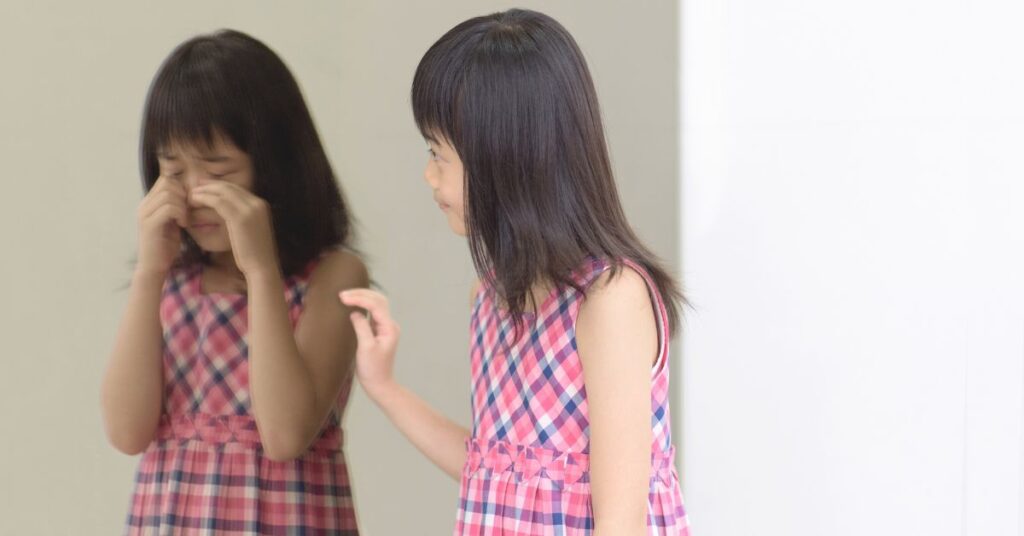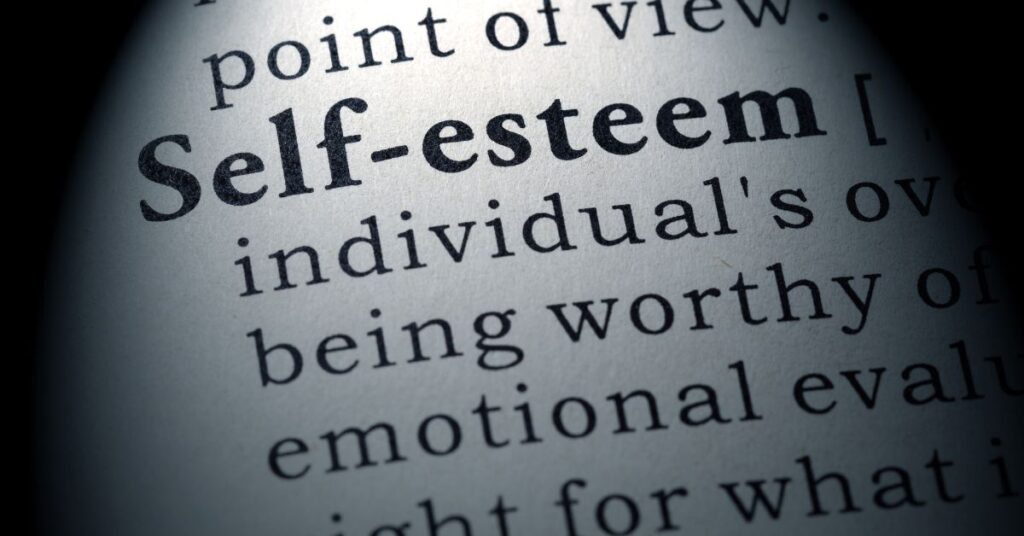So many children with autism and/or ADHD feel bad about themselves. This makes their lives so much harder, especially because they are already dealing with many challenges. How can we as parents and caregivers help our children with autism and ADHD improve their self-esteem?
How is self-esteem defined?
First, let’s define self-esteem so that we are all on the same page on what it means.
The Merriam-Webster Dictionary defines self-esteem as “a confidence and satisfaction in one’s self; self-respect.”
I like the meaning stated by the Department of Sociology at the University of Maryland. They define it as “a positive or negative orientation toward oneself; an overall evaluation of one’s worth or value. People are motivated to have high self-esteem, and having it indicates positive self-regard, not egotism. Self-esteem is only one component of the self-concept, which Rosenberg [Rosenberg Self-Esteem Scale] defines as ‘totality of the individual’s thoughts and feelings with reference to himself as an object.’ Besides self-esteem, self-efficacy or mastery, and self-identities are important parts of the self-concept.”
Why do children with autism and ADHD struggle with self-esteem?

Anyone can struggle with self-esteem, but why do our kids and teens with autism and ADHD tend to do so more often?
Children with autism and ADHD deal with social and cognitive challenges, which lead to self-esteem issues. Their behavior many times leave them “outsiders” or not fitting in with their neurotypical peers. They can experience frustration from their families, teachers and friends due to their challenging behaviors. They may struggle in school if they feel like they have difficulty keeping up academically. Their low self-esteem and lack of confidence can lead to lower performance in relationships, school, sports and other activities, which perpetuates the self-esteem problem.
I know this is an ongoing challenge with our son J. He has struggled with low self-esteem for many years. When he was in music therapy, one of the primary goals of his music therapist was to help J increase his self-esteem. After many years of therapy (both cognitive and music), some days, he is better; other days, he still really struggles with it.
How you can help your child improve their self-esteem
As parents and caregivers (or teachers and advocates), how can we help our autistic children improve their self-esteem? Try a few or all of these suggestions below.
1. Show patience and kindness toward your child
Your child’s self-talk and maybe even what they say about themselves to others may be very negative. Therefore, being patient and showing kindness to your child can help counteract those thoughts and negative self-talk, at least some.
2. Help your child set short-term goals they can achieve
Some kids and teens want to obtain lofty long-term goals quickly, and when they feel like they are failing, then that can affect their self-esteem. Instead, help them set short-term goals that are attainable to help build confidence and increase their self-esteem. It also will give them momentum to keep going toward their ultimate goals.
3. Remind your child or teen that everyone has bad days or even bad phases
We all have bad days when things seem to be falling apart, and we all make mistakes. Explain that to your child and let them know it does not make them a bad person. Share your own experiences and how you got over a phase when things weren’t going well.

4. Work with your child to identify their strengths
Understanding our strengths and the positives about us is a good step toward improving self-esteem. J’s music therapist gave him a small notebook in which we had to write one of his positive attributes every day. J’s cognitive therapist encouraged this as well. It was hard for him to do, but it was important to remind him that he does have a lot of strengths.
5. Encourage your child’s development of their special interest
For autistic children, they many times have a special interest. Encourage them to learn and participate in it even more. This can help improve their self-esteem as they become better and more knowledgeable about their interest.
6. Volunteer to help others
Volunteering is a great way to help others, with the benefit of feeling that you’ve done something good. Find an activity in which your child or teen can help. Maybe it’s going to the grocery store, buying food and dropping it off at a nearby food pantry. If your child loves animals, find a local animal shelter or rescue organization to volunteer to help with playing with the animals and cleaning. Your family could volunteer at a soup kitchen, community center or other place in your community that needs help. You can check VolunteerMatch to find volunteer opportunities near you.

7. Teach life skills to your teen
Learning how to do things for themselves and building life skills can help increase your teen’s self-esteem and confidence.
8. Get help for them if they are struggling in school
If your child or teen is struggling in school, then find help for them. Talk to your child’s teacher about what help the school offers. A tutor also could be a game changer in how well they do in a particular class and improve their grades.
9. Listen and talk to your child or teen every day
Set aside time every day to really listen to your child and talk to them. If their perspective of themselves or their situations are not correct, talk to them gently about why they are not and help them to better understand them. If they are struggling with how to interact with others and what to say, try role playing to help them better prepare or know what to do or say the next time.
10. Know when to seek professional help
If your child or teen with autism and ADHD has such low self-esteem that is causing concern that they may harm themselves or could be dealing with depression, anxiety or another mental health issue, seek professional help immediately. If they are already seeing a therapist, let them know if your child’s condition is worsening.
Additional resources
Still looking for more information or help for this topic? Check out these resources.
Self-Esteem Starters for Kids: Stretch Your Confidence!: Activities to Boost Your Inner Strength! (affiliate link)
An Aspie’s Guide to Overcoming Poor Self-Esteem: Been There. Done That. Try This! (affiliate link)
The Ultimate Self-Esteem Workbook for Teens: Overcome Insecurity, Defeat Your Inner Critic, and Live Confidently (affiliate link)
Being Me: A Kid’s Guide to Boosting Confidence and Self-Esteem (affiliate link)
Does your child or teen with autism and ADHD struggle with low self-esteem? What has worked to help your child? Leave a comment so that we can share and encourage each other along this journey.








